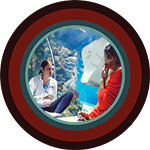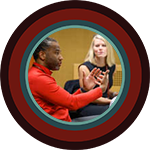Engagement Scholarship Consortium International Conference Pathways to Prosperity: Building Sustainable Futures through Community Engagement
October 9-10, 2024
Pre-Conference: October 7-8
Learn more
Hosted by Oregon State University and the member institutions of the ESC Western Region
Call for Proposals
The Call for Proposals is currently open and will close on April 8th, 2024 at 11:59 PM EST.
The Engagement Scholarship Consortium seeks proposals for its 2024 annual conference: Pathways to Prosperity: Building Sustainable Futures through Community Engagement. The conference will be held October 9-10, 2024 (Pre-Conference: October 7-8, 2024) in Portland, Oregon.

The 2024 ESC Conference will be a place for engaging conversations about the many ways that we work collaboratively toward meaningful change. We will come together to share the outcomes and impact of our work, explore new ideas and approaches to mobilizing for and initiating change, and co-creating solutions to society’s most pressing problems. Presentation proposals will be considered on any topic clearly connected to the advancement of community engagement. Presenters are especially encouraged to consider how their submissions reflect the theme of the conference:
- Mobilizing People: Who is involved in the process for mobilizing change, and how do we work toward partnerships in which all voices are heard?
- Mobilizing Institutions: How do we intentionally consider the needs and priorities of all stakeholders involved, and what are strategies for balancing different organizational perspectives?
- Mobilizing Ideas: How do we come together to implement, evaluate, and celebrate strategies for working toward the public good?
WHO SHOULD SUBMIT A PROPOSAL?
Individuals, teams, and transdisciplinary collaborators across the educational spectrum, including:
- Undergraduate and graduate students involved in community/university engagement and/or studying the impacts of service-learning and community engagement.
- Representatives of community, educational, government, and/or corporate organizations working in partnership with colleges and universities.
- University and college faculty and staff involved in the study or practice of engaged scholarship, the scholarship of engagement, the implementation of engagement programs, or service-learning.
- Higher education administrators, including community engagement professionals and student affairs professionals, who foster institutional support for community engagement.
- Community members and other critical stakeholders who play key roles in community/university partnerships and their impacts.
PRESENTATION FORMATS
Proposals may be submitted in any of the following formats:
Symposium Presentation – 20 minutes
A symposium combines two or three individual presentations grouped around a common focus area or closely related topic. Each individual presentation in a symposium will be allotted 20 minutes, with at least 5 of those minutes dedicated to active discussion with the audience. Unless otherwise noted in the proposal, the program committee will group individual presentations into a symposium.

Interactive Workshop – 60 minutes
Workshops are designed with an intentional focus on skill and knowledge development. Presenters should plan to share information about a particular body of knowledge, evidence-based practice, engaged teaching or research techniques, assessment or research results, or methodologies. Active discussion between audience and presenter(s) should be encouraged throughout the session. Workshops will be scheduled for 60 minutes total, composed of 40 minutes of active discussion and 20 minutes of interactive questions and answers with the audience.
Roundtables – 60 minutes
Roundtables are designed to be highly interactive sessions focused on a common theme or interest area. The presenter(s) should begin the Roundtable session with a brief presentation of the results of a research study, or a rich description of a translational, educational, service-learning, clinical, or other program of engaged scholarship or evidence-based practice. The presenter(s) should then facilitate an engaging conversation with participants to answer questions, share ideas, and discuss best practices or innovative approaches. Roundtables are scheduled for 60 minutes.
Panels – 60 minutes
Panels are designed to exchange information about a particular body of knowledge, evidence-based practice, engaged teaching technique, assessment or research instrument, or methodology. Panels include a target of three or four panelists and feature active discussions and conversation from various perspectives about a topic. Panels will be scheduled for 60 minutes, composed of 40 minutes of active panel discussion and 20 minutes of interactive questions and answers with the audience. These proposals should identify all panelists, as well as a moderator for the panel discussion.
Posters
Posters are best suited to reporting results of research studies, assessments, and evaluations as well as the presentation of translational, educational, service-learning, clinical, or other programs of engaged scholarship or evidence-based practice. Posters presented will be displayed continuously during an open viewing period. Also, to encourage networking and discussion of the displayed work, at least one presenter is expected to be present at the poster during the formal session.
PROPOSAL SUBMISSION REQUIREMENTS
- Primary presenter contact information
- Contact information for up to five co-presenters
- Presentation title (10-word maximum)
- Abstract for conference program (50-word maximum)
- Presentation description (300-word maximum) that addresses the following questions:
- What aspects of change will you be discussing?
- How did you work collaboratively to identify these opportunities for change?
- How are these changes impactful?
- Presentation theme(s)
- Mobilizing People
- Mobilizing Institutions
- Mobilizing Ideas
- Presentation focus area(s):
- Evaluation and Assessment for Engagement
- Approaches to Building Sustainable Partnerships
- Community-Engaged Teaching and Learning
- Community-Engaged Research
- Community-Engaged Creative Activities
- Community-Engaged Service and Practice
- Collaborative and Transdisciplinary Engagement
- Innovation and New Technologies for Engagement
- Leadership and Engagement
- Civic and Democratic Engagement
- Economic and Workforce Development
- Broader Impacts and Societal Benefit
- Engagement in a Time of Crisis
- Engagement for Diversity, Equity, Inclusion, and Justice
- Presentation format (e.g., symposium, poster, workshop)
- Three to five learning objectives
- Presentation technology needs
All presenters of accepted proposals will be expected to register for the conference. Preferences for presentation format may not be possible; however, the review team may consider the presentation for another type of presentation format. In these cases, the review team will contact the presenter to suggest an alternative format for consideration.
SUBMISSION DETAILS
The Call for Proposals is currently open and will close on April 8th, 2024 at 11:59 PM EST.
Note: If you are a new user to the OpenWater system, you must register to create a new account in order to submit a conference proposal. Fill out the form and Select "Register" at the bottom of the screen and follow the instructions. Once your account is created and verified, select "Conference Proposal" in the navigation, fill out the form and press "Save and Finalize".
If you submitted a proposal, grant or nomination, OR attended the conference in 2023, your OpenWater account will still be active. To reset your password, use the 'forgot password' link.
For further questions related to the proposal requirements, please contact:
Drew Pearl, Director of Community Engagement Research and Publications, University of Alabama, ESC 2024 Program Co-Chair for Submissions at info@engagementscholarship.org.
In case of technical difficulties, contact Brad Smith, Michigan State University, at smit1016@msu.edu or call (517) 884-1413.